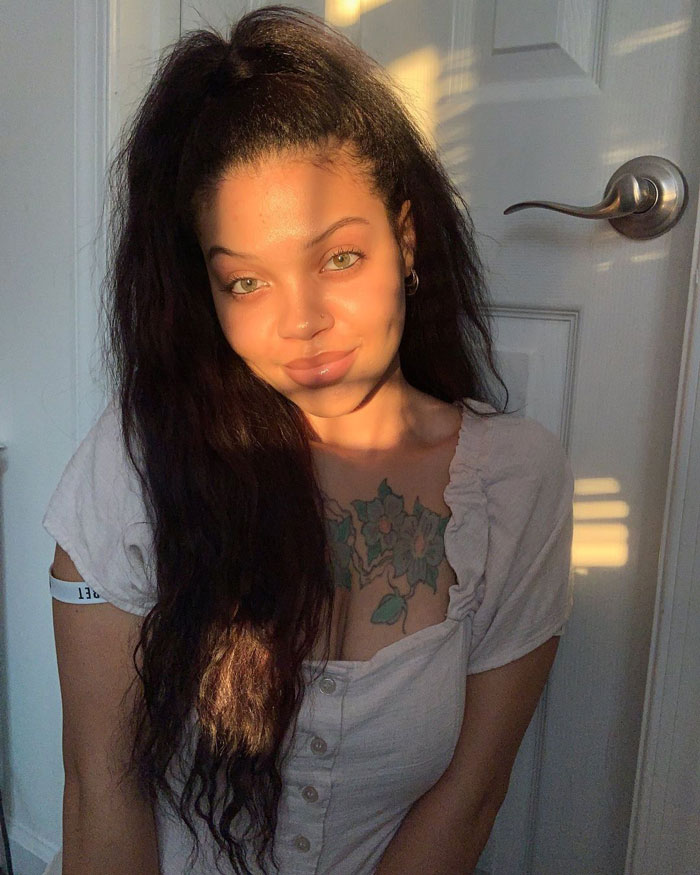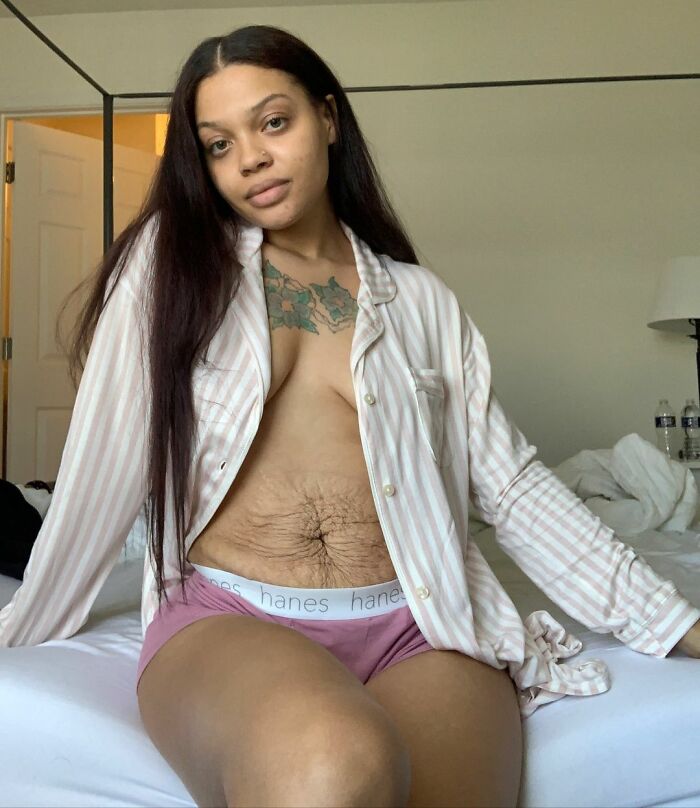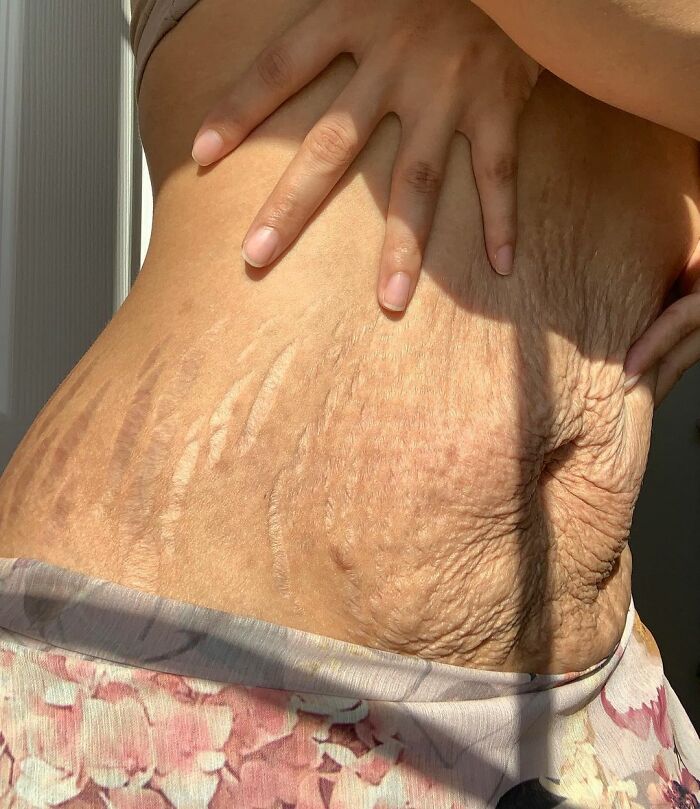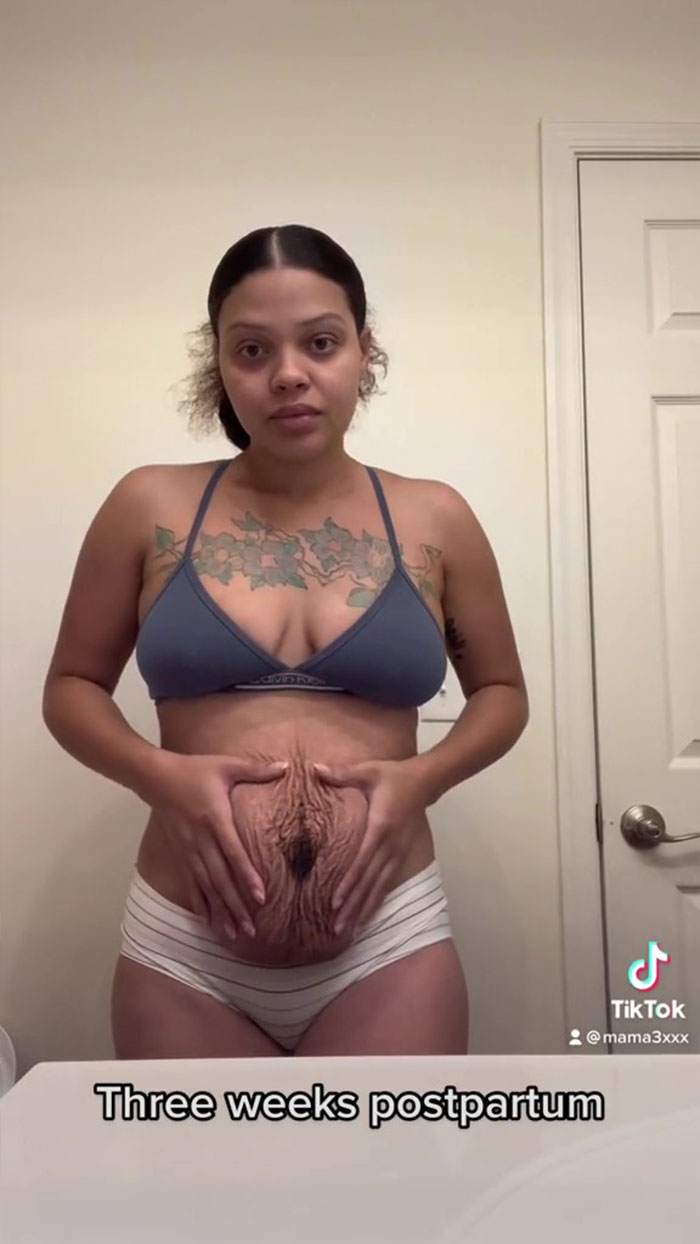Nobody has a perfect body image of themselves at all times. Even the most confident of us have dealt with self-esteem issues related to our bodies. From the way that your loved ones talk about body image to the exposure to ridiculous beauty standards in Hollywood and on social media can all affect us, as well as things like being bullied or teased in school.

Everybody has an inner critic, but we all need to learn to fight that mean little voice inside our heads, or the comments that the haters might make. When women get pregnant, they’re expected to bounce back immediately, but the nine months of carrying around a human can take a serious toll. That’s why one post-partum mom is changing the conversation and helping to normalize post-baby bodies.

Danisha Lestaevel wrote in one Instagram caption, “If you’re at your lowest, feeling down about your body, remember your beautiful children that see no flaws, you’re loved. If you don’t have children, remember that our bodies do so much for us daily, you’re beautiful and you’re loved,”

Earning over 19 million views on TikTok, Danisha has been documenting her unfiltered, unedited postpartum journey every step of the way, fighting the unrealistic portrayals we often see and movies and even in Hollywood from women with access to unlimited resources. All postpartum bodies are different, despite what social media feeds may tell us. And scolding yourself for the amazing thing your body just did isn’t cool, although society has let us normalize it.

Snapback culture creates pressure and a competitive environment when we should be lifting each other up. But how many magazine covers exist where another woman is applauded for toning up just weeks after giving birth? Society doesn’t care about our mental health or social life — it just matters if we get back to that tight, pre-baby bod. Luckily, people like Danisha are out here to educate folks on the toxic nature of snapback culture and the hypocritical expectations of new moms.

In 2020, Nisha shared the health challenges that she had been battling. She had undergone major surgery and needed to be “cut open” three times under general anesthesia, but at the time, family members weren’t allowed to be there due to COVID-19 regulations. She wrote on social media, “You come first, take care of yourself mentally and physically!” She reminded her followers to never judge people since we never know what’s happening behind closed doors.

She then made a video series showing her postpartum progress, writing a caption about how moms have a tough time, especially when their bodies change dramatically in a short time period. Nisha reminds people to be kind and patient to themselves when adapting to new versions of their bodies and to be selective in following certain social media accounts and avoiding certain content. Don’t be afraid to click that unfollow button if it doesn’t make you feel good — body positivity and acceptance is key.

Her one-week postpartum image got over 300,00 views. Lestaevel wrote, ”When we berate ourselves for some aspect of our being, whether physical or otherwise, we put ourselves into a state of energetic resistance. Simply put, that means we are going against our own energetic flow.”

At two weeks after giving birth, she had racked up almost 16 million views. She reminds fans to appreciate the incredible things your body does just to keep you alive, and it can help to accept your body as is without feeling a strong love or hate. It can bring life into the world, which is probably the most amazing thing it can do. As she puts it, “our bodies were designed to “be” and “do” rather than look a certain way.”

Finally, Danisha’s three-week postpartum image with wrinkles and stretch marks in full display racked up over 19 million views. Although her journey is an inspiring one that many other women make every day, the reactions on TikTok were mixed. Many were happy that the company founder was sharing an often-censored part of the journey in an honest way, while other viewers were freaked out, commenting, “I’m never having children.” Others lauded her and other pregnant women for their strength. It shows that while we have come a long way, there’s still quite a distance to go in normalizing post-pregnancy bodies.
Danisha Lestaevel’s perspective is an enlightening one — after all, the ability to give birth and be pregnant is a life-changing one. Although it is a sacrifice, it’s certainly also a blessing, and that should be celebrated in itself.












